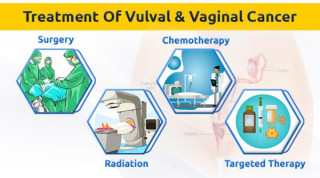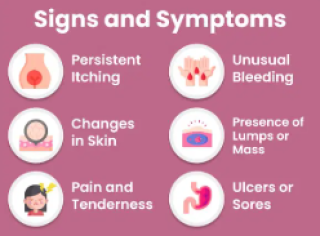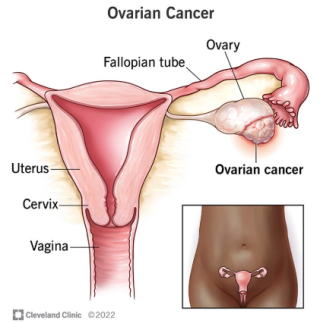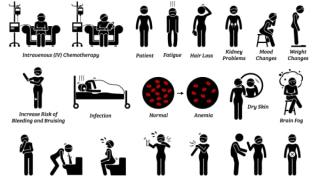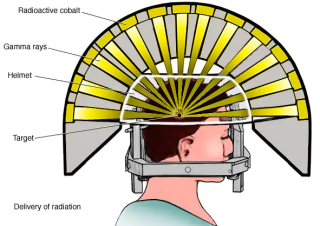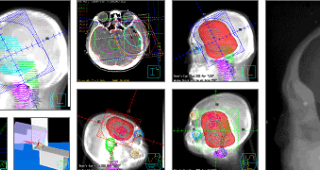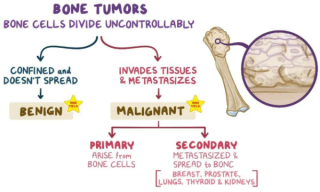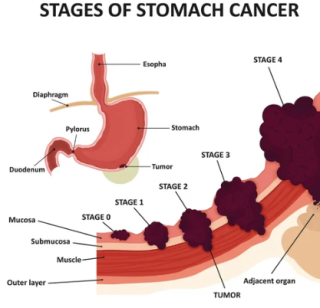Exploring Three Vulvar Cancer Treatmentscreated at May 05, 2009 1,303 1,303 Three common treatments for vulvar cancer include surgery, |
How is Hodgkin's disease treated?created at May 22, 2009 1,396 1,396 Hodgkin's disease treatment depends on the stage and type of the disease, |
Navigating Clinical Trial Decisions for Head and Neck Cancer Treatmentcreated at May 09, 2009 1,301 1,301 Clinical trial decisions for head and neck cancer treatment depend on several factors, |
Exploring Treatment Options Beyond Surgery for Head and Neck Cancerscreated at May 09, 2009 1,288 1,288 Treatment options for head and neck cancers beyond surgery include radiation therapy, |
Managing Expectations: How Long Until You Feel Better with Sinusitis Treatmentcreated at May 08, 2009 1,358 1,358 One common question that arises among individuals undergoing treatment for sinusitis is, |
Are there Clinical Trials available for Vulvar Cancer?updated at Nov 09, 2025 1,458 1,458 Clinical trials for vulvar cancer exist, |
Will I be able to adjust to Valva Cancer well?created at May 05, 2009 1,403 1,403 Adjusting to a vulvar cancer diagnosis and treatment is a deeply personal journey, |
Side Effects of Vulvar Cancer Chemotherapyupdated at Nov 08, 2025 1,437 1,437 Chemotherapy for vulvar cancer can lead to a variety of side effects, |
Radiation Therapy Side Effects of Vulvar Cancerupdated at Nov 09, 2025 1,507 1,507 Understanding Side EffectsRadiation therapy is a common treatment for vulvar cancer, |
Side effects of Vulvar Cancer Surgeryupdated at Nov 11, 2025 1,613 1,613 Curative surgery for vulvar cancer, |
Understanding Vulvar Cancer Diagnosis: What to Expectcreated at May 05, 2009 1,332 1,332 Vulvar cancer is diagnosed through a combination of methods, |
Vulvar Intraepithelial Neoplasia as Risk Factors for Vulvar Cancerupdated at Nov 08, 2025 1,516 1,516 Vulvar intraepithelial neoplasia (VIN) represents the abnormal growth of cells within the vulvar epithelium.It's classified as a precancerous condition, |
Tobacco as risk factors for vulvar cancercreated at May 05, 2009 1,276 1,276 While not a direct cause, |
Understanding Age as a Risk Factor for Vulvar Cancerupdated at Nov 09, 2025 1,278 1,278 Age is a critical factor in assessing the risk of developing vulvar cancer.Data consistently shows a strong relationship between age and the likelihood of a vulvar cancer diagnosis. Age and Vulvar Cancer IncidenceApproximately three-quarters of women diagn... |
Navigating Ovarian Cancer Treatment - Key Questions to Ask Your Doctorcreated at May 05, 2009 1,419 1,419 Ovarian cancer treatment depends on the stage, |
Navigating the Side Effects of Cancer Treatmentcreated at May 04, 2009 1,522 1,522 Cancer treatment, |
Precision Treatment: Understanding Stereotactic Radiosurgery for Brain Tumorscreated at May 04, 2009 1,424 1,424 Stereotactic radiosurgery (SRS) is a precise radiation therapy technique used to treat brain tumors and other lesions.It delivers a highly focused, |
Exploring Chemotherapy: A Powerful Weapon Against Cancercreated at May 04, 2009 1,357 1,357 Chemotherapy, |
Understanding the Side Effects of Brain Tumor Treatmentcreated at May 04, 2009 1,467 1,467 Brain tumor treatments, |
Understanding Radiation Therapy for Brain Tumorscreated at May 04, 2009 1,479 1,479 Radiation therapy for brain tumors uses high-energy radiation to kill cancer cells and shrink tumors.This can be delivered externally through a linear accelerator (external beam radiation therapy) or internally via implanted radioactive seeds (brachytherap... |
Exploring Treatment Options for Bone Cancer: A Comprehensive Guidecreated at May 03, 2009 1,562 1,562 Treatment for bone cancer depends on several factors including the type and location of the cancer, |
Demystifying Bone Tumors: Understanding Benign and Malignant Varietiescreated at May 03, 2009 1,338 1,338 Bone tumors are growths that develop in bone tissue, |
The basic information for Stomach cancercreated at May 03, 2009 1,386 1,386 Stomach cancer, |
